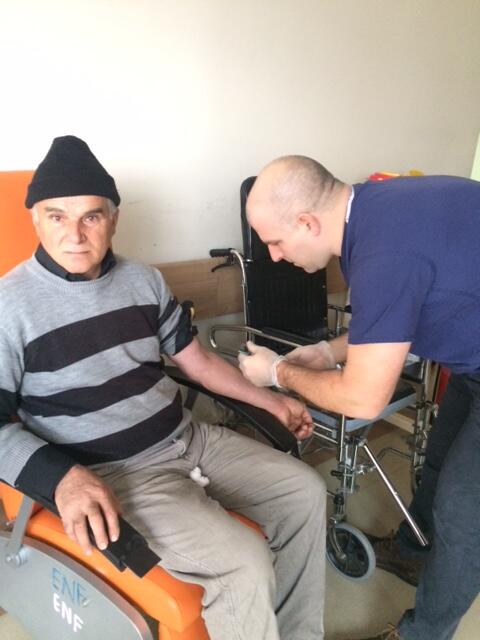
LSTM’s research fellow Dr Tom Fletcher is beginning collaborative work in the development of a monoclonal therapy to treat and cure Crimean-Congo Haemorrhagic Fever (CCHF), utilising the antibodies taken from the blood of survivors.
CCHF is a disease caused by a tick-borne virus endemic in Africa, the Balkans, The Middle East and some Asian countries, with 80% of reported cases occurring in Turkey. There is currently no cure for the disease with medical facilities only able to offer supportive treatment to patients. While the mortality rate is relatively small in Turkey with around 5% of cases resulting in death, those figures are much higher in other countries, and it is considered a priority emerging infectious disease by the WHO.
Dr Fletcher’s fellowship at LSTM is funded by the Wellcome Trust and the Ministry of Defence and this current partnership with Turkish Ondukoz Mayis University and the Public Health Agency of Canada (PHAC) follows his PhD work in understanding the pathogenesis of the disease.
Awarded an MBE in 2015 for his work tackling Ebola Virus Disease, at first on secondment with the WHO and later on the frontline as part of the UK military response in Sierra Leone, Dr Fletcher has extensive experience in the field of viral haemorrhagic fever. He said: “I am delighted that we have been able to start this new phase of work focussing on treatment. We are working with an excellent research group in Turkey led by Professor Hakan Leblebicioglu, as well as Professor Gary Kobinger and his team at PHAC who were responsible for the development of Zmapp, the drug used to treat Ebola. While CCHF has a lower mortality rate and is less infectious than Ebola, it poses a serious risk to Europe and the UK has seen several imported cases, the majority of which have proved fatal.”
Phase I clinical trials are scheduled to take place with healthy volunteers, hopefully in conjunction with the Royal Liverpool University Hospital in 2017, followed by phase II in people suffering from CCHF in Turkey. As well as partners overseas, Dr Fletcher will be working with researchers in Public Health England at Porton Down and Professor David Lalloo and Dr Nick Beeching at LSTM, and he is keen that the work begins now. He continued: “Learning the lessons from Ebola, Turkey offers us an ideal base, not only does it see the largest number of cases but it offers strong public health surveillance and case management. Our volunteer survivors are enthusiastic to be part of the work, travelling large distances to donate their blood so that their antibodies can used to provide a realistic hope to those suffering from the disease.”